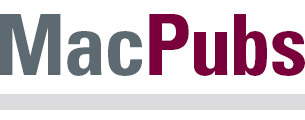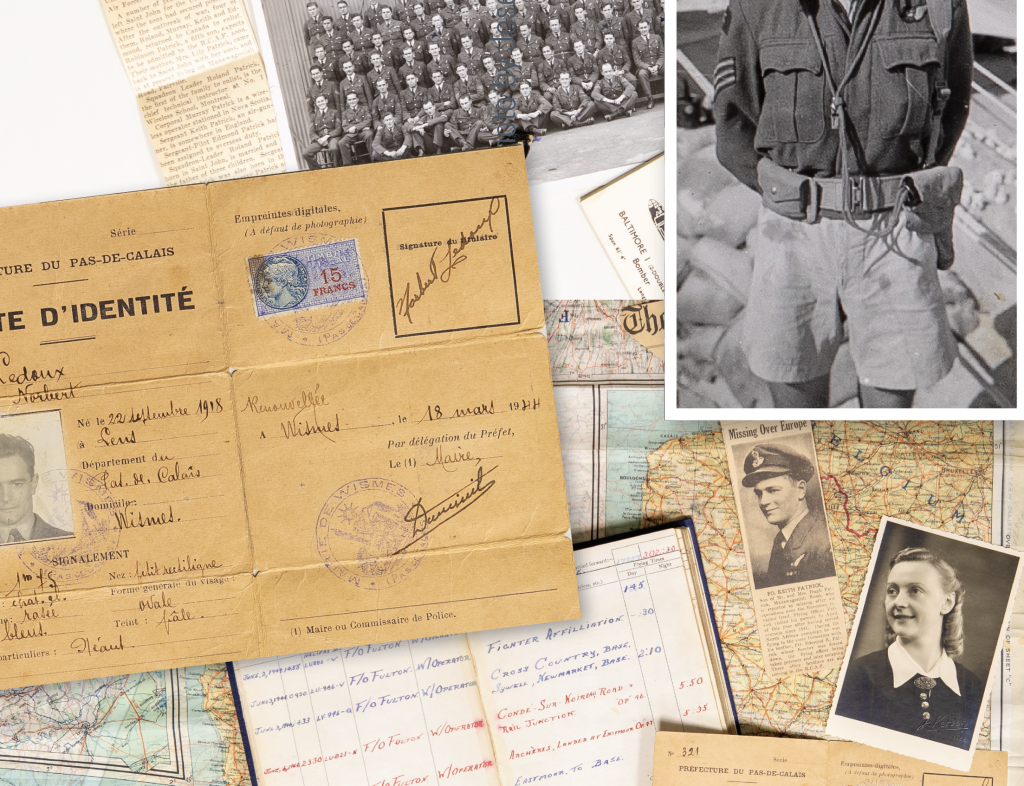McMaster University Library Impact Report 2022-2023
McMaster University Library
2022-2023 Impact Report
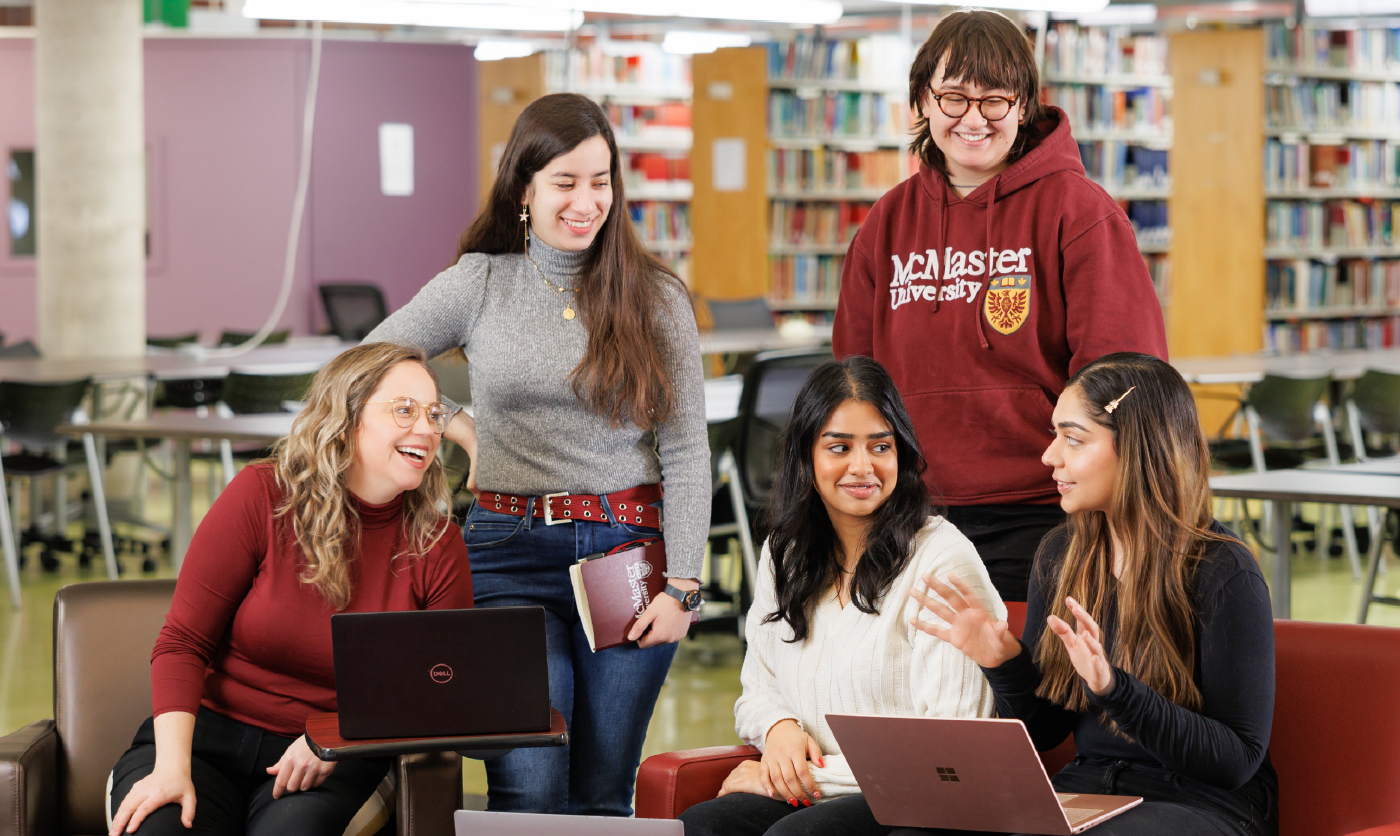
Message from the University Librarian
Dear friends,
I am pleased to share the 2022-2023 Impact Report from McMaster University Library.
For many of us on campus, this past year has signalled the return of supporting teaching, learning, and research as in pre-pandemic times.
The number of patrons visiting library spaces increased, our operating hours expanded, and library colleagues were kept busy with many projects while working both on- and off-campus.
Perhaps the biggest change for the library this past year was the increase in new faces.
We saw the hiring of three new associate university librarians, as Casey Hoeve, Helen Kula, and Lynne Serviss joined our Library Leadership Group. Each brings a unique skill set and a long list of accomplishments that strengthens our strategic work.

We also welcomed additional new library colleagues, from Digital Scholarship Services to the William Ready Division of Archives and Research Collections. We have been excited to see the skill sets and experience of these new team members.
We celebrated important achievements this past year. Last October, the Basil H. Johnston Archive at McMaster University Library became part of the Canadian Commission for UNESCO Canada Memory of the World Register. Johnston is considered one of the leading North American Indigenous authors of the 20th century, with the successful application made to UNESCO with the support of his family.
We saw the opening of the expanded and renovated Campus Accessible Tech Space in Mills Memorial Library, which supports McMaster students with diverse accessibility needs.
We continue to focus on innovation and collaboration in everything we do, including how the library supports McMaster’s research enterprise. We are proud partners of the Digital Research Commons Pilot which is creating a more connected approach to bringing together the digital tools, services, and supports McMaster researchers need.
Our Content, Access and Open Licensing team is also supporting our research community through agreements that cover article processing charges, making it free to publish work in select high-end journals.
These are just a few examples of the many strategic projects happening at the library.
Of course, our achievements are reliant on funding. We have many exciting plans for the coming years, but these are not achievable without ongoing financial contributions from the university and our donors. Please consider supporting our work by giving what you can using this McMaster donation webpage.
We invite you to enjoy this latest update from McMaster University Library.
Sincerely,
Vivian Lewis, University Librarian
McMaster Library Spaces
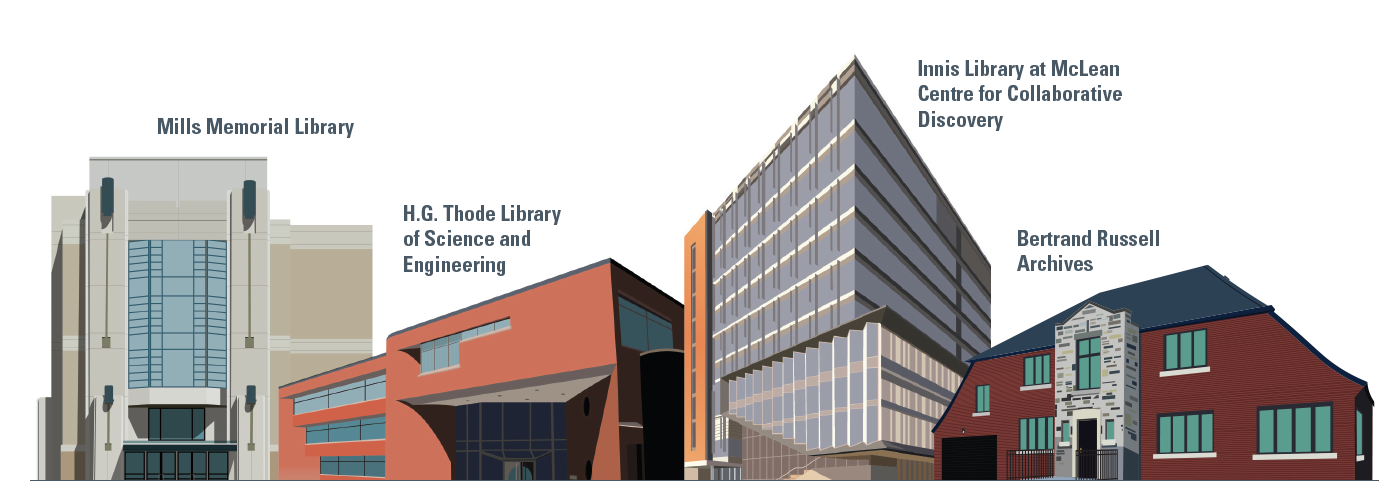
Information Box Group
Mills Memorial Library
Mills Memorial Library is home to the humanities and social sciences collections and offers a range of special services and resources. Among the numerous spaces within Mills are the William Ready Division of Archives and Research Collections, Lewis and Ruth Sherman Centre for Digital Scholarship, Lloyd Reeds Map Collection, and Lyons New Media Centre.
H.G. Thode Library of Science and Engineering
H.G. Thode Library is home to the science and engineering collections and offers services, study spaces, and learning resources. Thode Makerspace, an interdisciplinary and hands-on experiential learning space on the lower level of Thode library, reopened in fall 2022 to the excitement of students in faculties throughout the university.
Innis Library
Innis Library, home to the business collections and a range of research and instructional services, is closed during the construction of its new home, the McLean Centre for Collaborative Discovery of the DeGroote School of Business. The new Innis Library, to be located on the third floor of the McLean Centre, is tentatively planned to open in early 2025.
Bertrand Russell Archives
The Bertrand Russell Archives is home to the archive and personal library of famed British philosopher, peace activist, and Nobel Prize laureate, Bertrand Russell (1872-1970) and is one of the most comprehensive archives at McMaster library. The archives are open to the public at 88 Forsyth Avenue, located across the street from McMaster University.
Vision and Mission
Vision
McMaster University Library aspires to be a catalyst of intellectual activity for the University and its community.
Mission
McMaster University Library supports the University’s research and teaching mission by advancing knowledge and discovery, inspiring creativity, and building community.
We deliver innovative services, welcoming spaces, and exemplary collections to accelerate research, enhance learning, and improve the user experience.
Expanded Accessible Study Space Supports Students with Diverse Needs
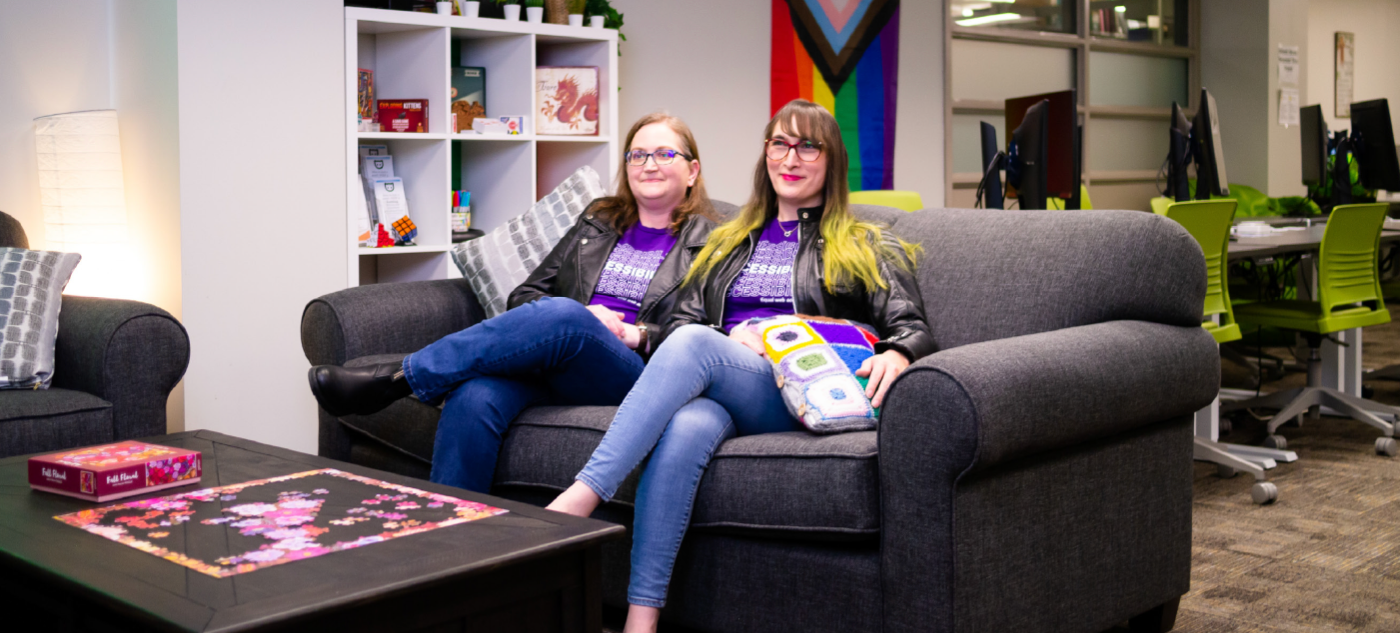
When the Library Accessibility Services team was presented with the opportunity to expand McMaster University’s accessible study space, they jumped at it.
Located in Mills Memorial Library, the Campus Accessible Tech Space (CATS) provides equitable resources, facilities, and services to support McMaster students with diverse accessibility needs.
In fall 2022 — less than four years after launch — CATS unveiled a large addition to the room to accommodate more students.
“The first iteration of CATS opened in November 2018, and by early 2020 we had already outgrown the space,” said Nancy Waite, coordinator at Library Accessibility Services. “Students were walking in and having to turn right back around because there was no seating available.”
Renovations to the space include a large expansion to the back of the room, furnished with soft seating, 12 height-adjustable desks, and a colourful aquarium.
The front of the room offers group study desks, two small couches, and an extensive assistive technology lending library.
Access is reserved for students formally registered with Student Accessibility Services, who can request a CATS key card for personal use of the space.
Paige Maylott, library accessibility assistant, says the private location is one of a kind at McMaster and stands out among other Canadian post-secondary institutions that offer similar resources.
“CATS is special because it considers the academic and personal needs of neurodivergent students, low-vision students, and mobility-impaired students all in one place,” said Maylott. “It’s also constantly evolving based on their needs, which are voiced to us either in-person or through anonymous surveys conducted by Nancy.”
More than 120 students registered with CATS during the 2022-23 academic year, but that number is expected to grow as the team works to strengthen existing connections with campus partners, says Waite.
“A large portion of our previous users graduated while the space was closed for renovations, so we’re making efforts to boost awareness with our current student population,” said Waite. “We want our students to know that this resource is available, and that we have the potential to support them.”
Opening McMaster’s “Hidden” Special Collections for Study and Research
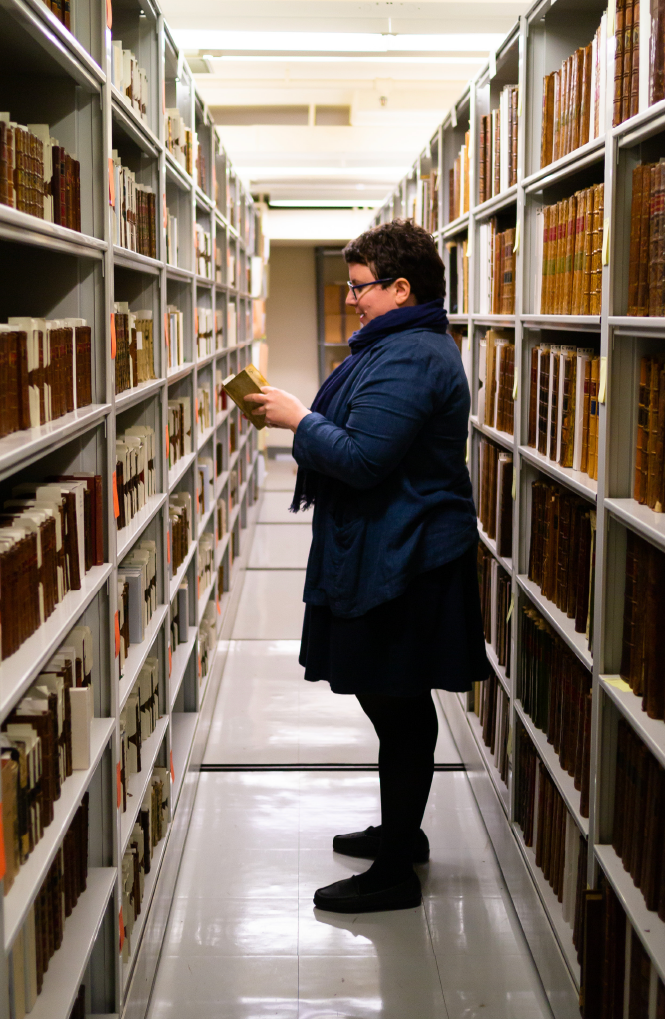
Each weekday morning, Ruth-Ellen St. Onge arrives at Mills Memorial Library and takes the stairs down to the William Ready Division of Archives and Research Collections, wondering what discoveries await her.
As the team’s distinctive collections cataloguing librarian, she is responsible for creating and maintaining digital records in the library catalogue. The work is meticulous and detail-oriented, but she wouldn’t have it any other way.
“Cataloguing rare materials is interesting because each item I work with is unique, from how it was printed to handwritten annotations by past owners,” St. Onge said. “My detailed notes make it easier for those researching these materials to find exactly what they are seeking.”
McMaster library’s archives and research collections is home to one of Canada’s preeminent rare book collections. Its holdings encompass a range of European and North American print culture from the 15th century to the end of the handpress era in the early 1800s. The division also holds an extensive collection of nearly 70,000 more contemporary volumes from the 19th to the 21st centuries, which feature an array of topics, genres, and literary forms.
McMaster library’s new hidden collections project will make available descriptions of thousands of recent and historical donations and purchases, with a particular focus on rare and unique printed materials.
Wade Wyckoff, associate university librarian for Distinctive, Legacy, and Digital Heritage Collections, says the initiative will benefit the McMaster community and beyond.
“Thanks to the generosity of the library’s donors, our collecting program has been so successful that it has outpaced our capacity to describe both new and older items and add them to the library’s catalogue,” said Wyckoff. “This project will support research by students and faculty from McMaster, as well as our robust teaching and outreach programs and will add to the strength of McMaster’s reputation as a destination for research and study.”
St. Onge holds a PhD in French and book history and print culture, as well as a master’s degree in information studies in library and information science, both from the University of Toronto. Her expertise and skill set make her critically important to the hidden collections project, and she’s equally thrilled to be undertaking this work.
“There are some really remarkable books, in particular, that have been acquired by archives and research collections and it’s amazing to handle them,” she said. “There are many days when I can’t believe I have the opportunity to work with these items.”
Library Takes Lead on Campus-Wide LinkedIn Learning Initiative
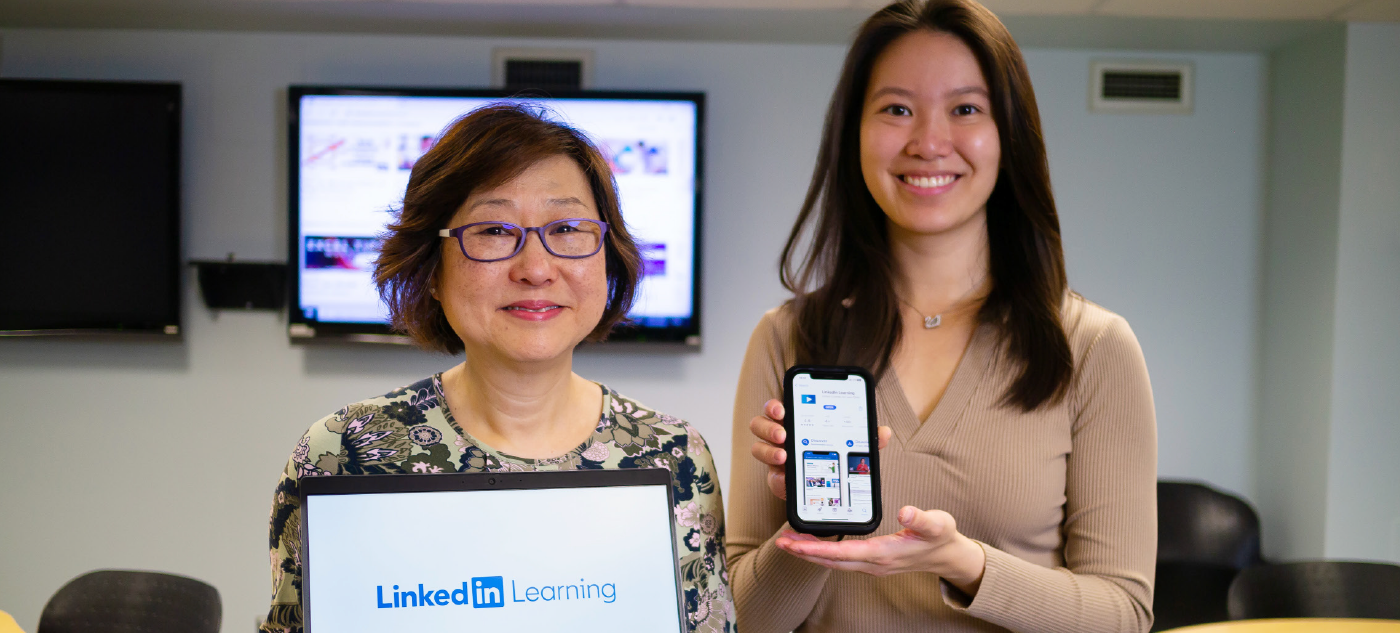
McMaster University Library is helping to ensure the campus community retains access to more than 21,000 on-demand instructional courses.
The library took the lead on administering LinkedIn Learning — a popular online learning platform — across campus in the fall of 2021 after the university’s licence was set to expire.
Funded by the Office of the Provost, the three-year renewed licence includes free, unlimited access to LinkedIn Learning for active McMaster students, faculty, and staff.
“The library is a learning hub on campus, so it was important to us that we did what we could to continue providing this valuable resource to our McMaster community,” said Jeannie An, LinkedIn Learning campus coordinator and Ron Joyce Centre research services librarian.
More than 9,000 McMaster affiliated users accessed LinkedIn Learning and 15,000 hours of video content were consumed from May 1, 2022 to April 30, 2023.
Currently, the platform is supporting classroom learning, personal and professional development, and diversity, equity and inclusion training at McMaster.
“Our outreach and engagement have been so successful that representatives from LinkedIn Learning consider McMaster the ‘gold standard’ among post-secondary institutions that offer the resource,” said An.
A key to the project’s success is the LinkedIn Learning Advisory Committee. The committee, chaired by An, consists of staff from across the university. Members perform outreach in their respective areas and come together at monthly meetings to report on LinkedIn Learning’s success.
Another element of success is McMaster’s LinkedIn Learning student ambassadors, who assist in the planning of events and digital marketing strategies to connect with students.
Anne Pottier, retired associate university librarian and former chair of the LinkedIn Learning Advisory Committee, says she’s proud of how the initiative has progressed, especially over the last year.
“I’m thrilled each time I come across a McMaster newsletter that features LinkedIn Learning,” said Pottier. “It’s evidence to me that all of our efforts are paying off.”
Looking ahead, An says she sees great potential for LinkedIn Learning to support more of the McMaster community.
“Our team is dedicated to extending LinkedIn Learning to all corners of campus,” said An.
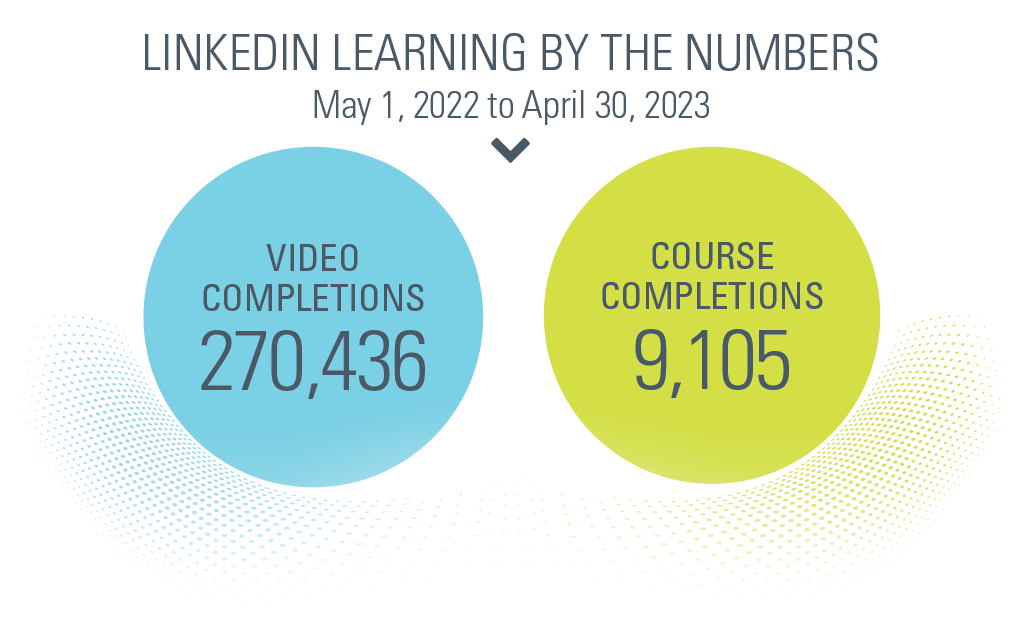
New Publishing Agreements Extend Reach of McMaster University Research
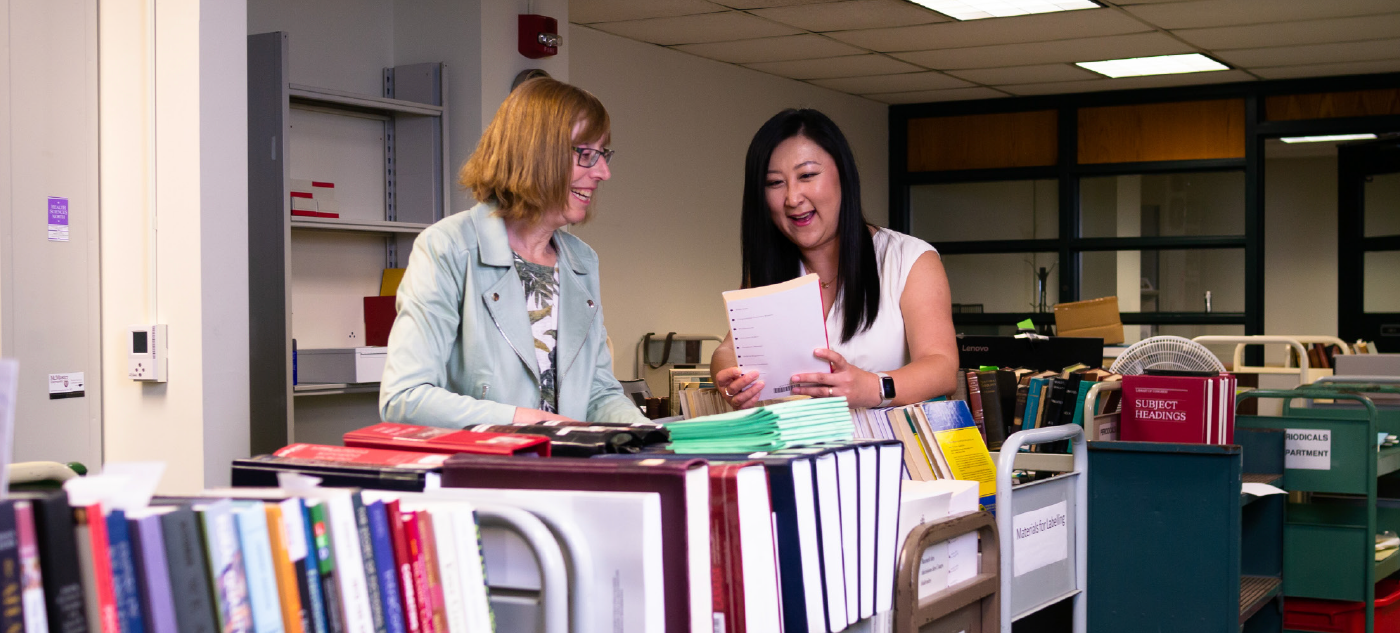
Two recent agreements are making it easier for McMaster University authors to publish their research in academic journals.
The multi-year agreements signed by McMaster University Libraries in early 2023 will see the elimination of article processing charges for McMaster authors submitting their work to Public Library of Science (PLOS) and Wiley, each established publishers of open access journals.
This means that McMaster faculty, staff, and students won’t need to worry about the financial implications of publishing in any Wiley hybrid journal or PLOS journal during the next two and three years, respectively.
“We are thrilled to be able to support McMaster researchers through our recent partnerships with PLOS and Wiley,” said Janice Adlington, head of collections and content strategy at McMaster University Library. “Both agreements offer an incredible opportunity for McMaster research to reach new audiences throughout Canada and internationally.”
Unlike traditional academic journals that are accessible through a paid subscription, open access journals offer scholarly research articles to the public free of charge. Typically, authors looking to publish their work in an open access journal will incur article processing charges to cover the cost associated with making their article openly available for free.
The elimination of article processing charges expands publishing opportunities for all McMaster researchers regardless of their career stage, and whether or not they have research grants or departmental funding.
McMaster libraries, which includes the Health Sciences Library, currently have agreements with 15 academic publishers to waive or discount article processing charges for McMaster authors.
Casey Hoeve, associate university librarian, Content, Access, and Open Licensing at McMaster University Library, says the agreements exemplify the libraries’ commitment to open access publishing.
“In support of the university’s research and teaching mission, we will continue to seek opportunities to provide affordable avenues for McMaster researchers to disseminate their publications,” said Hoeve. “The goal is to achieve this without paywall limitations and offer means for sharing and accessing academic contributions in the current global research environment.”
Meet Our New Associate University Librarians
It is a time of renewal at McMaster University Library, with the appointment of three new associate university librarians to the leadership team. They join Wade Wyckoff, associate university librarian, Distinctive, Legacy, and Digital Heritage Collections.

Associate University Librarian
Content, Access and Open Licensing
The opportunity to serve as the new associate university librarian, Content, Access and Open Licensing at McMaster brought Casey Hoeve to Canada.
He started in the role in November 2022.
“The continuous change of collection needs and publishing models require greater analysis to support the university scholarly community,” said Hoeve. “As I move forward in this newly established position, the libraries will continue to build upon the strengths of existing collections, while making a strong commitment to enhance diverse and inclusive content for research and curriculum support.”
Formerly known as Collections, McMaster’s newly branded Content, Access, and Open Licensing team has a large area of responsibility, from the acquisition of books to open access arrangements with journals.
Hoeve holds a bachelor of science in biomedical sciences and history from Grand Valley State University and a master of science in library and information science from Drexel University.
He comes to McMaster library from the University of Nebraska-Lincoln, where he has spent the last three years as head of Content and Collections at the university’s research libraries.
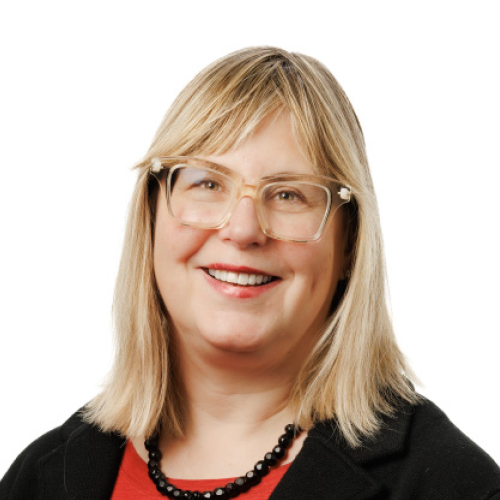
Associate University Librarian
Teaching and Learning
Helen Kula brings more than two decades of experience in research libraries to her role as associate university librarian, Teaching and Learning.
She joined the library in November 2022.
“While my role is new, the library has a long history of contributing to teaching and learning within the university,” said Kula. “I am looking forward to building on that legacy and working with my colleagues to maximize the impact and reach of our work as learning partners with McMaster faculty and staff.”
McMaster library’s Teaching and Learning Program seeks to develop critical information literacy and thinking skills, and empower students, staff, and instructors as both producers and consumers of information and knowledge. This is done through one-on-one research consultations, instruction both inside and outside the classroom, and other activities that increase engagement and use of the library’s resources and services.
Kula holds a master of arts in English literature from McGill University, and a master of information studies in library and information science from the University of Toronto.
Prior to coming to McMaster, Kula served as head of Research and Instruction at the University of Toronto Mississauga Library.

Associate University Librarian
User Services and Community Engagement
Lynne Serviss, a familiar face around McMaster library, has been named associate university librarian, User Services and Community Engagement.
The experienced McMaster librarian moved into the role in September 2022.
“As someone who has worked at McMaster for the past 10 years, I am delighted to continue with the libraries at a more senior level with a focus on users and community engagement,” said Serviss.
“Currently, I am concentrated on building on our current models of access and looking for unique and creative ways to improve the user experience in the library.”
Serviss’ portfolio includes Mills Memorial Library, H.G. Thode Library of Science and Engineering, and the new Innis Library at the McLean Centre for Collaborative Discovery slated to open in early 2025.
She holds a bachelor of arts in anthropology from Trent University and a master of library and information studies from the University of British Columbia.
Serviss joined McMaster library in 2012, first serving as an instructional librarian focused on social sciences and humanities. She became services librarian at Mills Memorial Library in 2017.
Help is Only One Call Away for McMaster Instructors
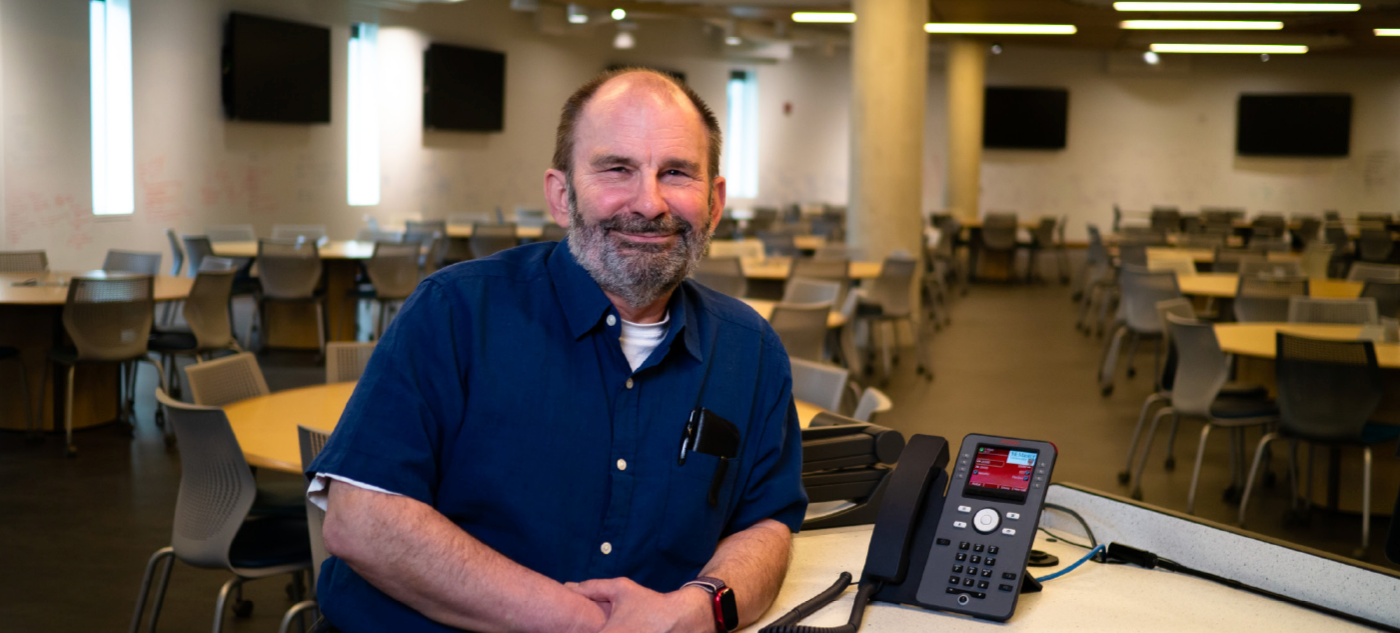
It may just look like a phone, but it is so much more.
It’s a line to Campus Classroom Technologies for help with the audiovisual technology from access to codes to turning on a projector, connecting a device, or streaming a lecture. It’s a connection to facilities for problems with lighting, heating or cooling, tables and chairs, or even more chalk for the blackboard. It’s a direct call to campus security if help is needed.
The classroom phone project was years in the making after multiple requests from instructors and was completed thanks to a collaboration between McMaster University Library’s Campus Classroom Technologies (CCT), Telecommunications with University Technology Services (UTS), and the Registrar’s Office.
The work started in September 2022 when the mighty duo of Kevin Andrews, senior audio-visual technologist with CCT, and Steven Harris, a telecom technician/engineer with UTS, worked around class schedules to add phones to the 140 registrar-controlled classrooms throughout McMaster.
“Prior to these phones being added to the classrooms, instructors would have to place calls from their cellphones or send an email to get help which wasn’t always easy or timely enough for them,” said Andrews, senior audio-visual technologist with CCT. “We’ve heard a lot of positive feedback now that the phones are installed.”
It was not as easy as simply plugging in internet phones into the classrooms. Often new technology and hardware had to be installed first between scheduled classes in buildings throughout campus. The project wrapped in a record four months in December 2022.
Anne Pottier, director of technology support and operations, says CCT is dedicated to creating state-of-the-art classroom environments for McMaster’s instructors.
“We looked at this as being complementary to our significant upgrades to technology in the classrooms that has taken place the past few years,” said Pottier. “The addition of phones is something instructors have been asking for and we’re glad we could work with campus partners to overcome the numerous challenges and make it happen.”
Anna Maria DiFilippo, senior technical support analyst (telecom) with UTS added: “This transformative project showcases our commitment to empowering instructors and cultivating a truly connected community, where telecommunications technology seamlessly integrates with teaching and learning to enhance the educational experience.”
Echo360 Usage Booming
The past year saw a continued increase of Echo360 usage at McMaster University. Echo360 is a lecture capture system which allows the recording and live streaming of classroom lectures, meetings, and other events. It is operated by the Campus Classroom Technologies team. The tool is beneficial in making remote learning possible, allowing students to watch lectures as many times as needed, and enabling the addition of accessibility features like captioning lectures, among its many advantages.
By the Numbers: May 1, 2022 to April 30, 2023
| Users | 23,200 |
|---|---|
| Videos | 20,700 |
| Live streams | 5,400 |
| Video views (on demand and live stream) | 1.8 Million |
| Closed captioned hours | 19,900 |
| Interactive poll responses | 396,000 |

Digital Pilot Creates One-Stop Shop for McMaster Research Support
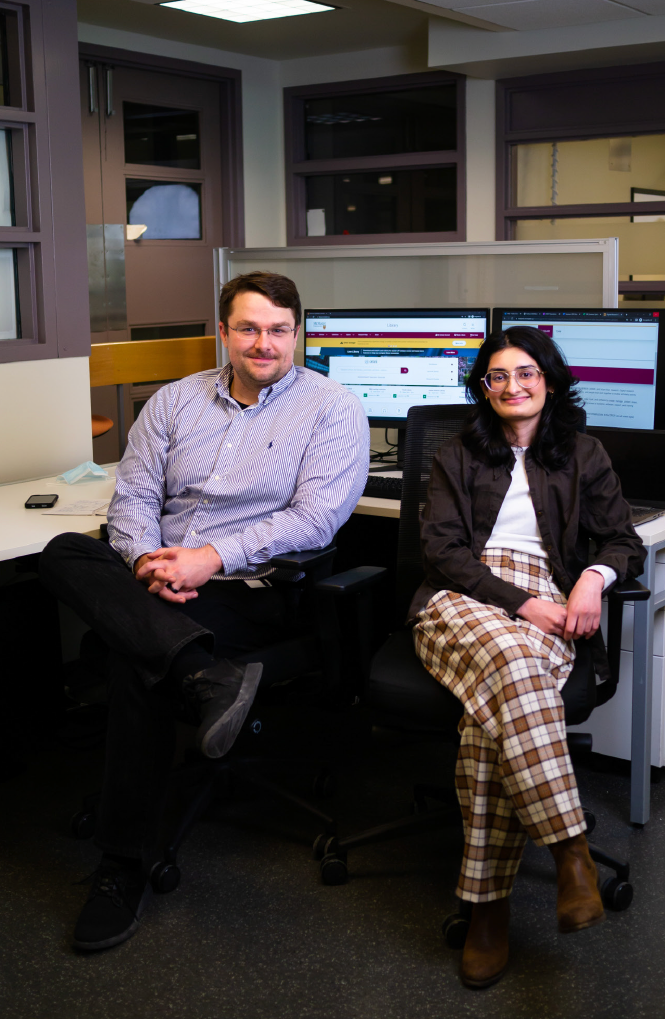
A team of experts has come together under one virtual roof to help ensure those involved in research at McMaster University have access to the digital tools, services, and supports that they need.
The Digital Research Commons Pilot is a three-year project that will lay out how McMaster can create a more connected, capable, and user-focused approach to digital support for research. The goal of the pilot is to improve access to systems, services, software, and training for researchers across the institution.
“This pilot is about bringing everything that researchers need to be successful into a coordinated arena,” said Angela Di Nello, senior manager of the Digital Research Commons Pilot at McMaster University Library.
“Based on feedback from our McMaster community, we know that researchers have many needs, such as data management plans and security requirements, to successfully apply for grants. We want to support these more technical elements so they can focus on their day-to-day work.”
Di Nello; Jay Brodeur, associate director of Digital Scholarship Services at McMaster University Library; Ranil Sonnadara, special advisor to the Vice-President, Research, and Tracy Dallaire, director of information security services at McMaster, are co-leads on the collaborative Digital Research Commons Pilot.
The pilot builds on existing digital research support at McMaster and identifies gaps so complementary and shared services can be developed to meet the diverse needs of the community.
The team assembled for the project is an all-star collection of staff representing a vast range of expertise, from information security and research data management to research impact and research software development.
The pilot is supported by the Provost’s Strategic Alignment Fund. It is co-sponsored by the Office of the Vice-President, Research; McMaster University Library, and the Office of the Assistant Vice-President and Chief Technology Officer.
Susan Tighe, provost and vice-president (Academic), says the project aligns with the university’s strategic goal of fostering world-class research and scholarship.
“The Digital Research Commons Pilot will ensure that researchers across the university have access to McMaster’s global experts and are equipped to the take advantage of evolving technology,” she said.
Brodeur added: “The exciting part of this project is that it brings together everyone who supports the digital side of research and builds a framework for them to collaborate more easily. It’s all about creating those avenues for people to have conversations and collaborations because when researchers have the support they need, great things can happen.”
Basil H. Johnston Archive Added to UNESCO Canada Memory of the World Register
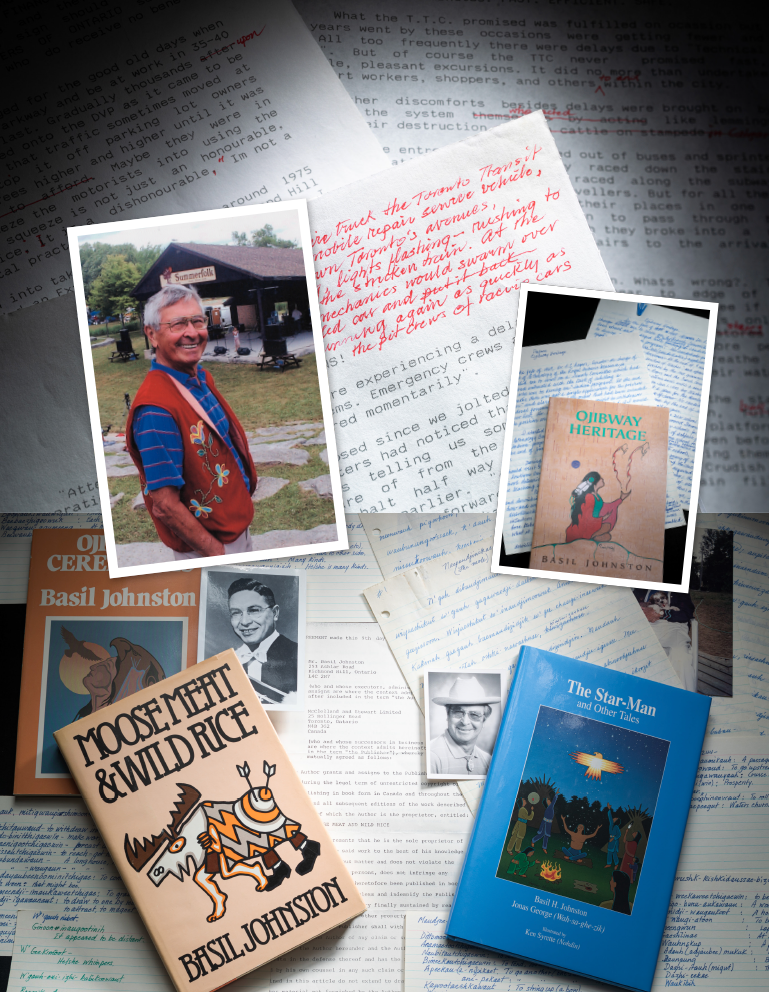
The Basil H. Johnston Archive at McMaster University was added to the Canadian Commission for UNESCO Canada Memory of the World Register in fall 2022.
Johnston (1929-2015) was an Anishinaabe (Ojibwe) author, linguist, and teacher. Widely considered one of the leading North American Indigenous authors of the 20th century, he wrote about Anishinaabe traditions, language, and modern life.
The Canada Memory of the World Register, created in 2017, promotes the diversity of the country’s significant documentary heritage, which extends from the initial settling of the land by Indigenous Peoples up to the present time.
“The addition of the Basil H. Johnston Archive to the Canada Memory of the World Register is a deserving recognition of his remarkable contributions, and also celebrates the dedication of McMaster’s archives and research collections team in ensuring archives of Indigenous creators are preserved and accessible to the public,” said Vivian Lewis, McMaster University Librarian.
Johnston donated his archives to McMaster library’s William Ready Division of Archives and Research Collections in 2012. The UNESCO Canada Memory of the World application was submitted by the library with the support of Johnston’s family.
The personal archive of Johnston comprises his writings and translations, published and unpublished manuscripts, works of fiction, poetry, plays, and works of non-fiction. Also included in this rich archive are materials related to Johnston’s experiences in the Indian Residential School system along with his research files on Indigenous land claims. These textual materials are supplemented by photographs and sound recordings, including recordings of Johnston narrating traditional Ojibwe stories.
The archive pertains intimately to the places which shaped his life, especially the communities of Wasauksing and Neyaashiinigmiing (Chippewas of Nawash Unceded First Nation) where he learned the Ojibwe language and stories which became his life’s work.
“Because the Basil H. Johnston Archive chronicles so many creation stories and place-names of the Anishinaabe peoples it is also, in a sense, a testament to the broad human geography of Anishinaabemowin speakers — stretching from Quebec to the Great Plains,” said Myron Groover, archivist and rare books librarian at McMaster’s William Ready Division of Archives and Research Collections.
Johnston’s life passion was sharing, recording and teaching Anishinaabe culture and language. He was the author of 25 books in English and five in Anishinaabemowin.
He created audio programs to teach Anishinaabemowin, wrote in popular newspapers and periodicals, and had a career as an Anishinaabemowin storyteller and teacher at the Royal Ontario Museum.
“His archive is a real gift for Indigenous scholars and community researchers who will be able to engage with his work and add to the legacy of his vision for a strong, vibrant presence of Indigenous teaching and learning in this country for decades to come,” said Rick Monture, associate professor of McMaster’s Department of English and Cultural Studies and a member of the McMaster Indigenous Research Institute.
Cody Groat, chair of the Canadian Advisory Committee for Memory of the World, said: “The Canadian Commission for UNESCO and the Memory of the World Advisory Committee are honoured to recognize the national significance of this collection that challenged the ideologies of cultural assimilation upheld by the Indian Residential School System, especially within the context of the United Nations International Decade of Indigenous Languages.”
Meet Our New Colleagues

Digital Research Technology Analyst
Joined Digital Scholarship Services
January 2023
As a general trend, research practices are becoming more deeply entwined with diverse digital technologies and associated support systems. Institutions can leverage these “digital research supports” to attract researchers and enhance research output. However, research institutions sometimes have decentralized organizational structures, and this can make it quite difficult for researchers to effectively find, use, and coordinate the digital resources that might benefit their research. The Digital Research Commons Pilot is a three-year pilot project, focused on co-creating a vision for coordinated digital research support at McMaster. We want to improve access to digital research supports for researchers and ensure that these supports are coordinated and flexible to fit research needs. To accomplish this, we are partaking in ongoing engagement with various stakeholders throughout the university. We are presently in the first year of our pilot, engaged in numerous formative endeavours. My efforts are mainly directed to stakeholder engagement and formal project analysis activities that guide and evaluate Digital Research Commons Pilot operations. I also fill many other gaps as needed!
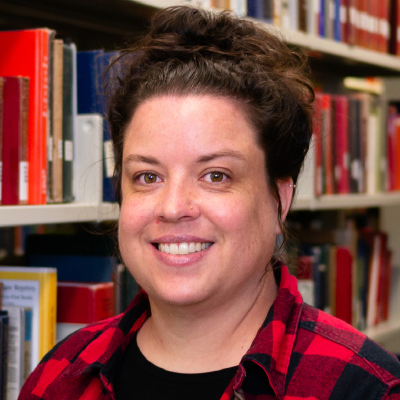
Archives and Book Conservator
Joined William Ready Division of Archives and Research Collections
August 2022
In my role as an Archives and Book Conservator in the William Ready Division of Archives and Research Collections, my main objective is to look after the physical well-being of the collection. This work involves activities that help extend the life of our collections. One of the main components of my job is interventive treatment, repairing and treating books and archives so that they can be safely stored and handled. I also undertake preventative conservation work like making protective enclosures, monitoring the environmental conditions of the space, and providing advice about archival materials and policies. I collaborate with my colleagues to prepare exhibitions that give visitors a taste of some of our treasures. All of the elements of my job come together to help make the material accessible to people in the McMaster community and the wider world. It is a pleasure to work with such an interesting, diverse, and exciting collection, and it’s important that we are able to provide a high level of care to ensure it is available now and for future generations.
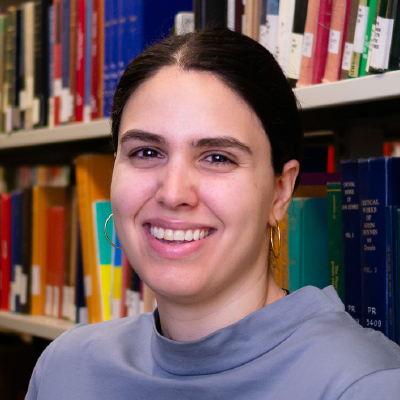
Cartographic Resources Librarian
Joined Lloyd Reeds Map Collection
June 2022
As the Cartographic Resources Librarian, I take care of the university library’s Lloyd Reeds Map Collection. This collection includes, but is not limited to, contemporary and historical sheet maps, atlases, books, aerial photos, globes, and fire insurance plans. I ensure the physical well-being of these resources — making considerations for their storage and, if necessary, their restoration — as well as their intellectual organization, making sure these resources are described and categorized in such a way that people can easily find them based on their needs. A large part of my role involves fostering map literacy amongst our varying user communities via workshops, lectures, and consultations. Whether I’m introducing cartographic resources to undergraduate students for a local history assignment, or I’m running a workshop on participatory mapping methods for community researchers, I try to foster a critical understanding of cartographic resources and methods — especially considering their centrality in larger colonial and imperialist projects. Ultimately, my role is to ensure that our different user communities can both access and understand the university library’s expansive and evolving cartographic collection.
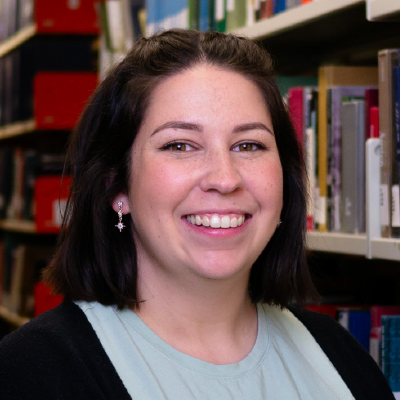
Digital Media Specialist
Joined Lyons New Media Centre
April 2023
As someone who has previously worked in Mills library, I’m glad to say I’m back home. Working in the Lyons New Media Centre has been my dream since my first day here at McMaster, and I am beyond thrilled to officially be part of the team. The work we do here in Lyons is so much more than camera equipment rentals or creating digital signage. We have created a safe space for anyone on campus to create, express, and discover who they are through all forms of interactive media, including virtual reality, podcasting, 3D printing, photography, and so much more. My role as a Digital Media Specialist includes assisting students, faculty, and staff with anything media related. One of my main goals is to get more students involved with the centre, and use this space to their full creative potential, and help them along the way. My favourite thing about working here in Lyons is seeing someone’s eyes light up when they walk in for the first time. That will never get old.
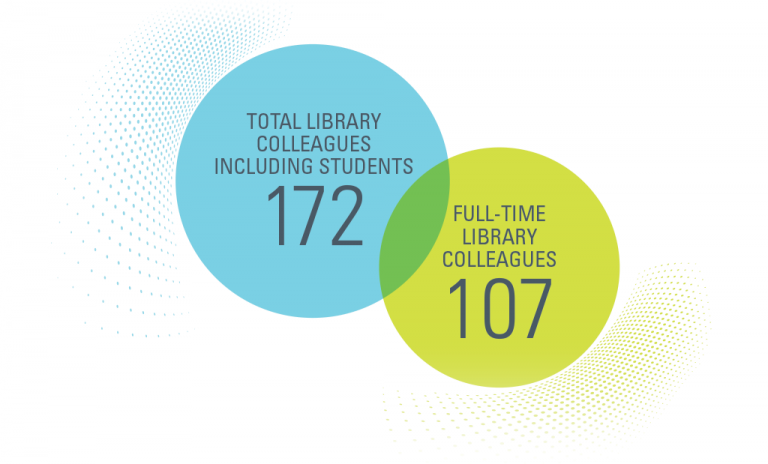
Anne Pottier Reflects on an Extraordinary Career
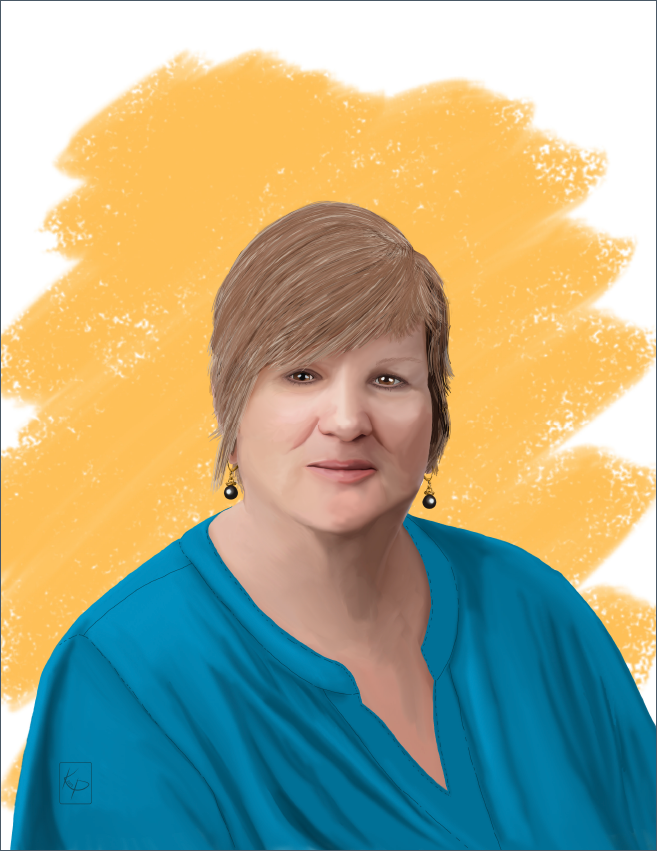
Anne Pottier has been a trailblazer at McMaster University for more than four decades.
Born and raised in Toronto, she moved to Hamilton in 1981 after accepting the role of inaugural online searcher and reference librarian at McMaster University Library.
“I had known from the time I was five years old that I wanted to be a librarian, but I thought I wanted to be a children’s librarian,” said Pottier, recently retired associate university librarian. “It wasn’t until I was completing my undergraduate degree that I realized my strength was in programming, efficiencies, and automation.”
Throughout her career, Pottier has applied her expertise in streamlining complex library processes to nearly every library department, from acquisitions to services.
“Since I arrived, I knew I wanted to make library operations more efficient,” she said. “When I moved to the Interlibrary Loan Department in the mid-1980s, the first thing I did was replace the teletype with a computer for email.”
Her enthusiasm for improving the systems that surrounded her reached far beyond her work as a librarian.
As the former chair of the McMaster Accessibility Advisory Council, Pottier is a longtime champion for accessibility both on and off campus.
“Throughout high school I worked at a group home near Belleville where I supported individuals with physical and mental disabilities,” she said. “When my career led me to McMaster, I had a natural pull to support our students with accessibility needs.”
During her early years at McMaster, Pottier took the initiative to develop accessibility within the library by providing one-on-one support to students with disabilities, arranging for alternate format material, and raising awareness of accessibility among library colleagues. This support is now formalized as Library Accessibility Services.
Over time, her accessibility advocacy extended campus-wide.
“I was a part of McMaster’s first President’s Advisory Coordinating Committee on Disability in the late 1980s,” she said. “Some of our earliest projects were installing curb cuts, handrails, and accessible washrooms on campus. These accommodations seem basic now, but at the time they were not.”
Beyond campus, Pottier is a former chair of the Canadian National Institute for the Blind – Hamilton. She most recently represented McMaster on the provincial Education Standards Development Committee to develop recommendations for a proposed accessibility standard for post-secondary institutions.
In addition to her accessibility work, Pottier was a leading proponent of sustainability at McMaster. She represented the library on McMaster’s Sustainability Advisory Council from 2019 through 2022 and coordinated several sustainability initiatives within the library.
Pottier officially retired from her role as associate university librarian in February 2023. She signed on to stay for the short term as director of technology support and operations for the library and as an accessibility consultant to the provost’s office.
Shortly before her retirement, Pottier and her husband, Andre, moved from Hamilton to a small town on the shores of Lake Huron. Her daughter, Nicole, and two young granddaughters, Mya and Sophie, live a short drive away.
As a longtime donor, Pottier is committed to supporting the growth of the library.
“It’s important to me because I have seen firsthand how impactful even small donations can be,” she said.
Looking to the future, Pottier says that she is excited to see how the projects she’s been involved with across campus and within the library will develop and evolve.
“This is not a job I will close the door on and put behind me,” she said. “I look forward to returning to the library to see how things progress. There’s so much room for growth here and I’m excited to see what is yet to come.”
Uplifting Women, Non-Binary People Seeking Careers in Data Science
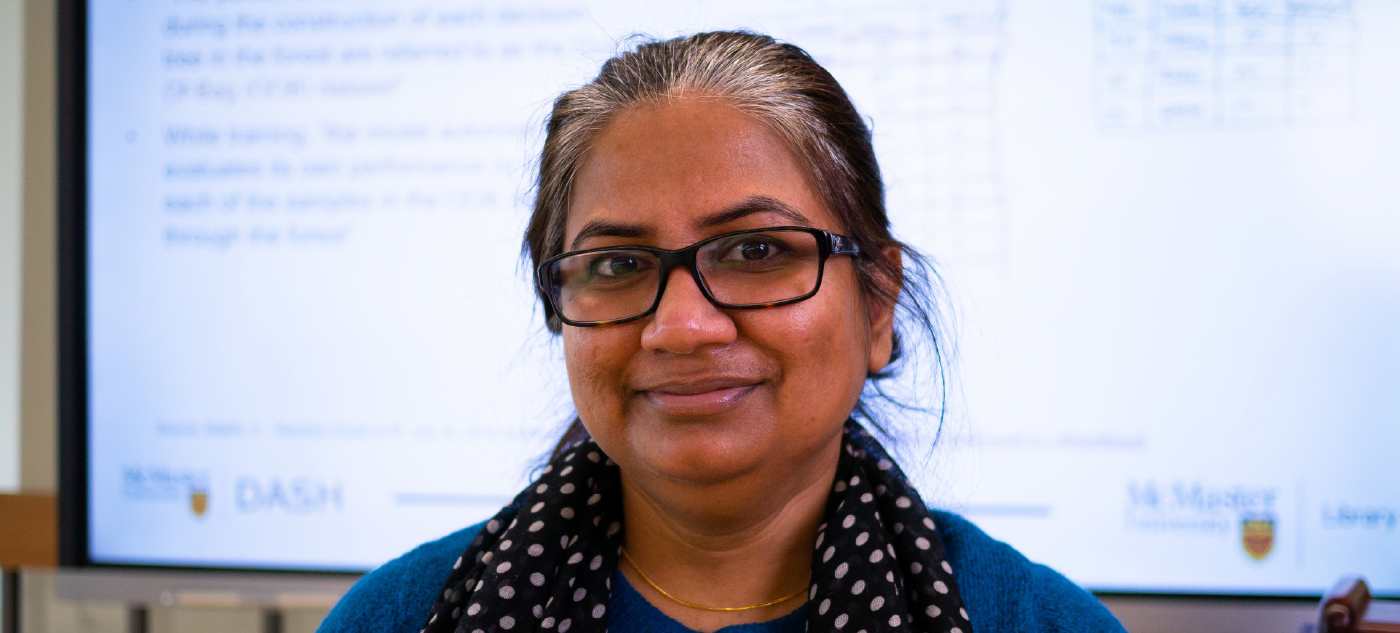
Shaila Jamal is someone who wants to make a difference.
The McMaster alumna, who recently completed her PhD from the School of Earth, Environment & Society, loves to teach data science and conduct community-engaged research.
“I think it’s important to give back to your community, especially if you have a skill to share,” said Jamal, a past graduate resident and former student staff member of the Sherman Centre for Digital Scholarship of McMaster library and the Faculty of Humanities.
Jamal’s passion to give back to the Hamilton community through teaching inspired her to forge a relationship between the Sherman Centre and the YWCA Hamilton Uplift Program.
The YWCA Hamilton Uplift Program provides women and non-binary people with the opportunity to reskill or upskill in advanced manufacturing or data science through certification training and additional supports.
Jamal graduated from the first cohort of the Uplift program and stayed on as a volunteer. Starting in summer 2022, she worked to establish a relationship through the Sherman Centre to present Uplift participants with six additional interactive workshops through the Data Analysis Support Hub (DASH) series, provide one-on-one consultations, and develop additional teaching materials.
The YWCA-McMaster library relationship also gave Uplift participants access to dozens of virtual workshops presented by the Sherman Centre.
“I loved the Uplift program, and I realized early on that I could support it through my interest in teaching to support someone’s entry into data science or programming,” Jamal said. “I heard from many program participants that I was able to help make a difference.”
Subhanya Sivajothy, data analysis and visualization librarian at McMaster, says Jamal’s work aligns with the mandate of the Sherman Centre.
“We are always working on new relationships with community partners on all aspects of digital scholarship, and Shaila’s work shows the incredible impact we can make when we work together,” Sivajothy said.
Jamal received a YWCA Hamilton Woman of Distinction Award in 2023 in recognition of her work as a volunteer community-engaged researcher, educator, and mentor.
Shannon Cummings, senior manager of the YWCA Hamilton’s Centre of Innovation added: “We are so appreciative of Shaila’s expertise, insight, and mentorship. She is an inspiration to our participants, and we are so grateful for the support and encouragement she has provided to women in this emerging field.”
By The Numbers
McMaster University Library saw a return to operations similar to pre-pandemic times for the fiscal year of May 1, 2022 to April 30, 2023. Mills and Thode libraries were unaffected by unexpected closures during this period. Innis Library, slated to open in early 2025, remained closed as construction continued on its new home in the McLean Centre for Collaborative Discovery. Meanwhile, our library colleagues continued to find innovative ways to support teaching, learning, and research at McMaster.
Collections
Titles held (all formats):
4,193,125
E-books*:
2,241,975
*Total held by McMaster University
and Health Sciences libraries
Expenditures
Total acquisition expenditures:
$13,006,661
Instruction
Library presentations
to groups:
315
Total participants in group
presentations:
14,128
Reference
Number of reference
questions answered:
15,743
Circulation
Number of items borrowed:
27,660
Interlibrary loans
Number of filled requests
provided to other libraries:
7,547
Gate count
Mills Memorial Library:
758,379
H.G. Thode Library of
Science and Engineering:
518,307
Innis Library:
Closed for construction
Digital experience
Main website pageviews:
1,738,704
Users:
485,811
Significant Acquisitions: Archives

Gary Barwin Collection of Chapbooks, Broadsides, and Literary Periodicals
Hamilton writer, composer, and multidisciplinary artist Gary Barwin is helping to ensure the history of literary culture in Canada is celebrated and publicly available. Barwin, an award-winning author best known for his novels Yiddish for Pirates and Nothing the Same, Everything Haunted: The Ballad of Motl the Cowboy, donated more than 500 contemporary chapbooks, predominantly from small press publishers across southern Ontario, to the William Ready Division of Archives and Research Collections. Accompanying the chapbooks are hundreds of colourful broadsides, pamphlets, postcards, periodicals, magazines, and catalogues. Of note in the catalogue series is a collection of directories from the annual Toronto Small Press Book Fair.
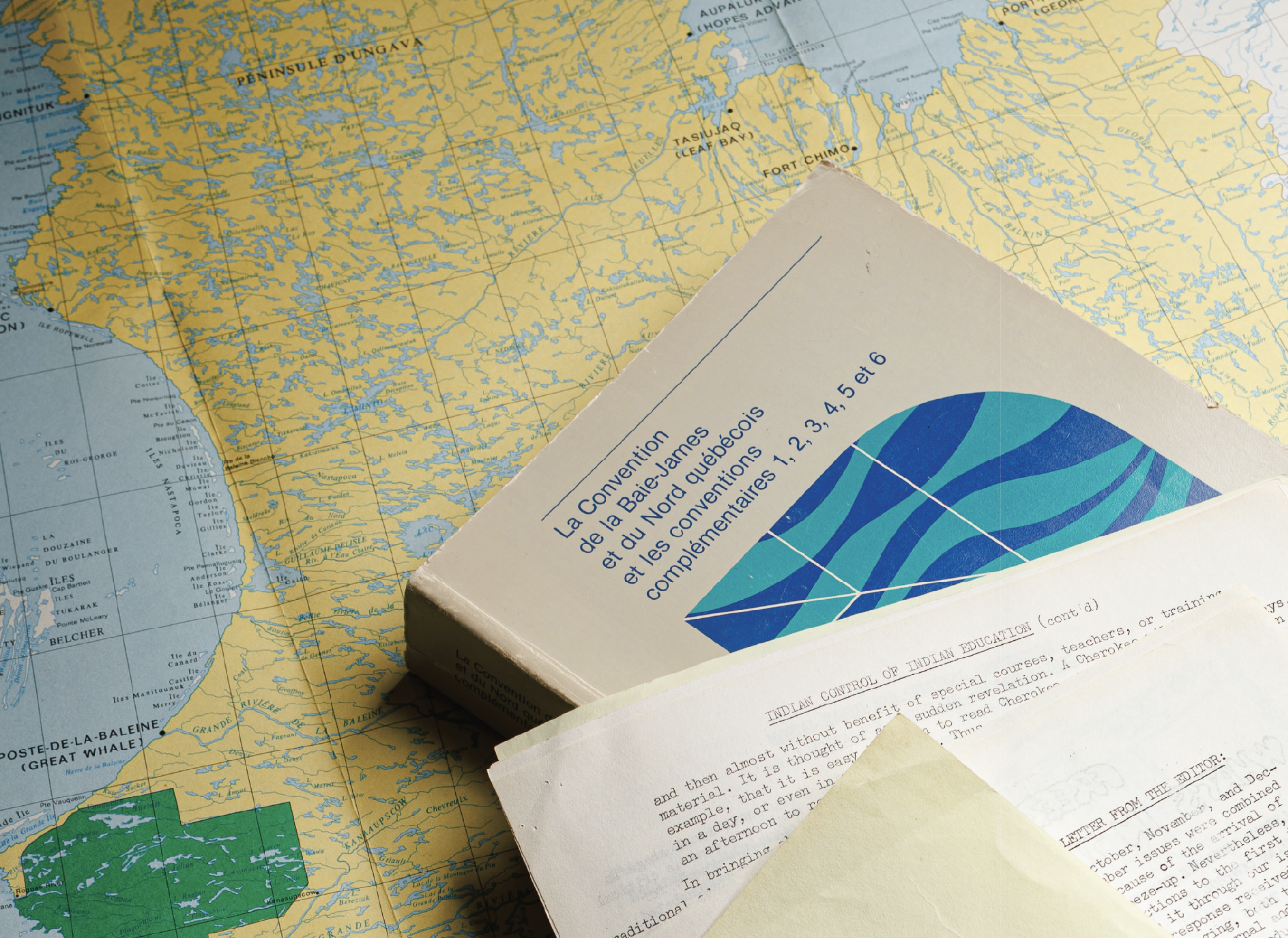
Harvey Feit Archive
Harvey Feit has dedicated his life to research and work with Eeyou (James Bay Cree) peoples. Feit was involved in the negotiation and implementation of the James Bay and Northern Québec Agreement (1975), the first comprehensive land claim agreement between the governments of Canada, Québec, and Indigenous Peoples since the early 20th century. A professor emeritus of anthropology at McMaster, Feit has donated a set of records created by Eeyou government bodies and committees, as well as records authored by other organizations and governments involved in the implementation of the agreement. McMaster University Library and Aanischaaukamikw Cree Cultural Institute jointly administer access to this collection.
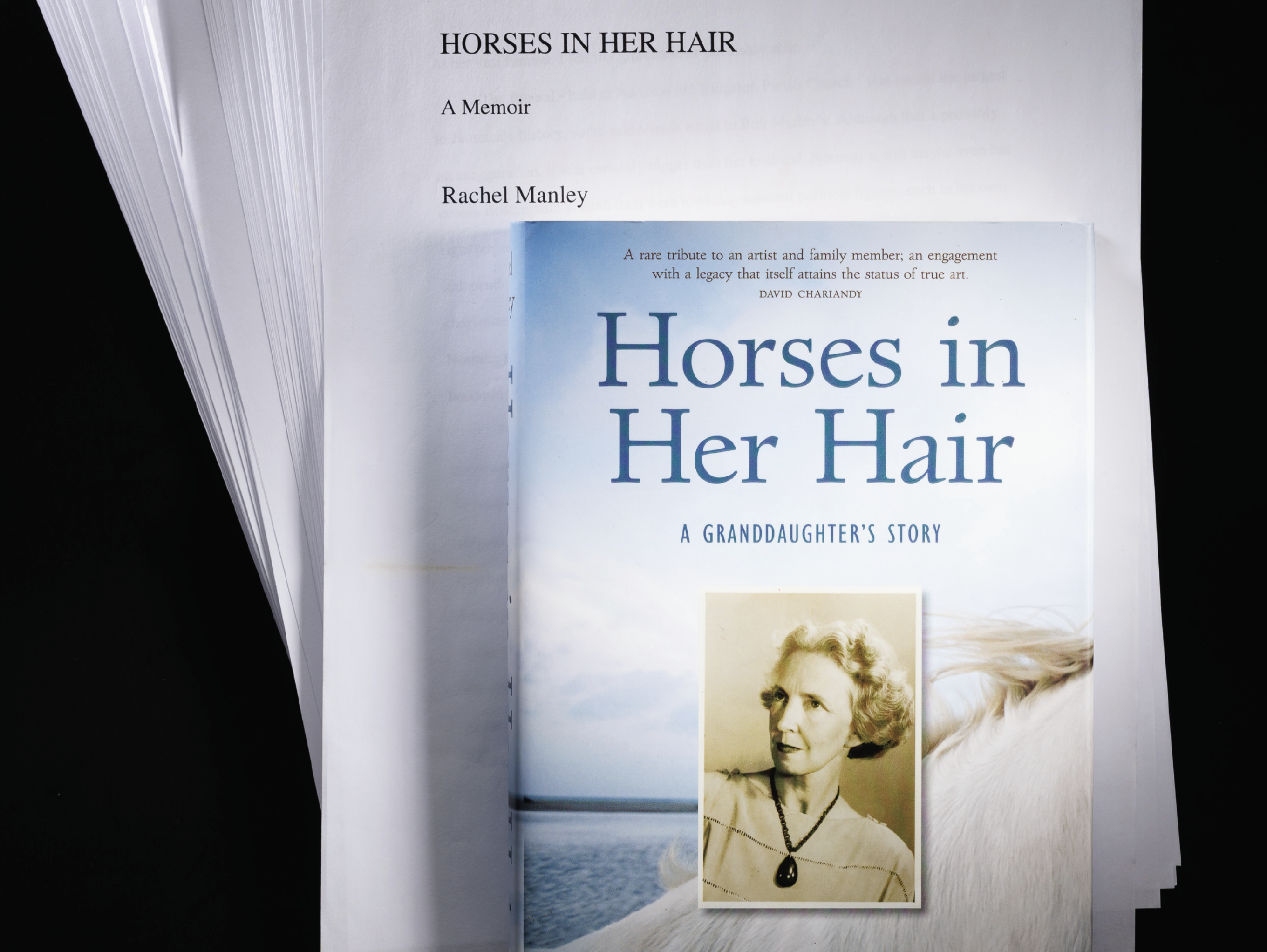
Rachel Manley Archive
Rachel Manley is an award-winning author of non-fiction, poetry, and fiction, and member of a prominent Jamaican political family about whom she has written several memoirs. Her father, Michael Manley, was a Jamaican politician who served three terms as prime minister (1972-80, 1989-92). Throughout the 1970s and ’80s, Manley published three volumes of poetry and contributed to magazines and literary journals. In 1986, Manley moved from Jamaica to Toronto, Canada, where she started writing critically acclaimed non-fiction family memoirs. Manley gifted her archive to McMaster. It includes records related to her writing career, particularly the period from the late 1990s and on when she began writing memoirs.
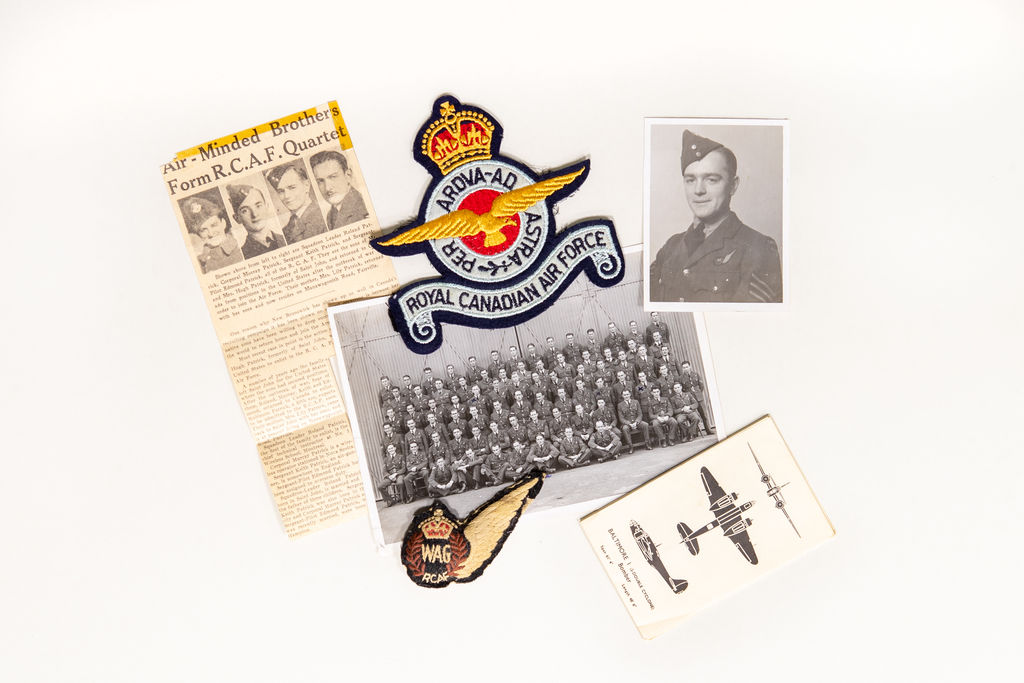
Keith Patrick Archive
Keith Patrick (1918-2021) was a wireless operator and air gunner with the Royal Canadian Air Force (RCAF) whose plane was shot down by enemy fire in France in June 1944. His survival story is of one of incredible bravery displayed by both Patrick and the French families who aided in his recovery. The archive includes his RCAF escape kit, maps, flight logbook, photographs, telegrams, letters, newspaper clippings, and more. Two maps made of silk — including the one he had on him when his plane went down — are the first of their kind to be added to McMaster’s collection. The archive was donated by Patrick’s daughter, Janet Lee MacNeil.
Significant Acquisitions: Rare Books
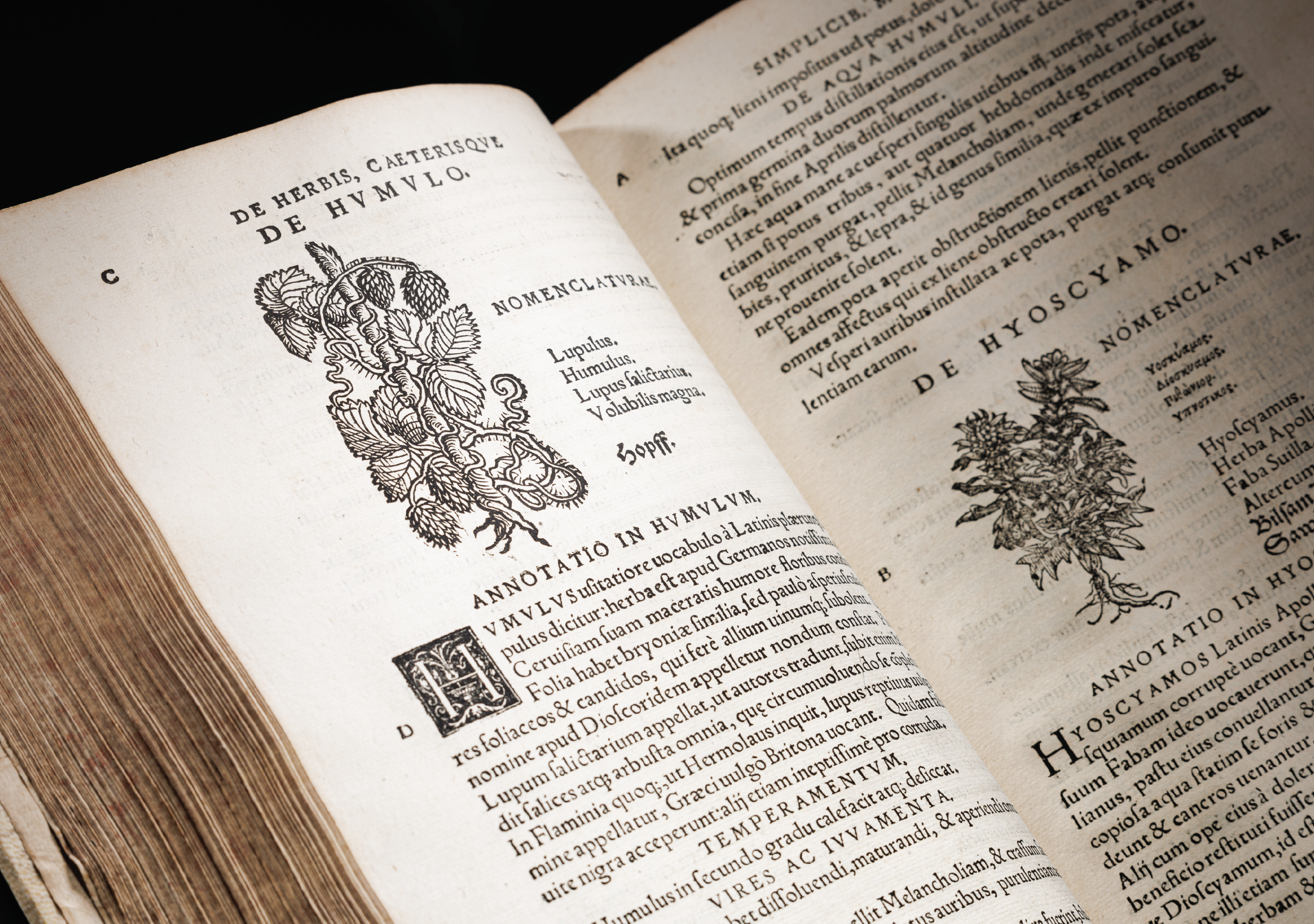
Botanicon
Theodor Dorsten
(Frankfurt, 1540)
Dorsten’s Botanicon was an important work in the development of early modern botany — not least for its clear and accurate woodcut illustrations which depict an enormous range of plants and medical simples. Originally commissioned as an expanded translation of Eucharius Rösslin’s influential 1533 Kreutterbuch, the Botanicon served as the basis of Adam Lonicer’s own Kräuter-Buch, which remained in print well into the eighteenth century.
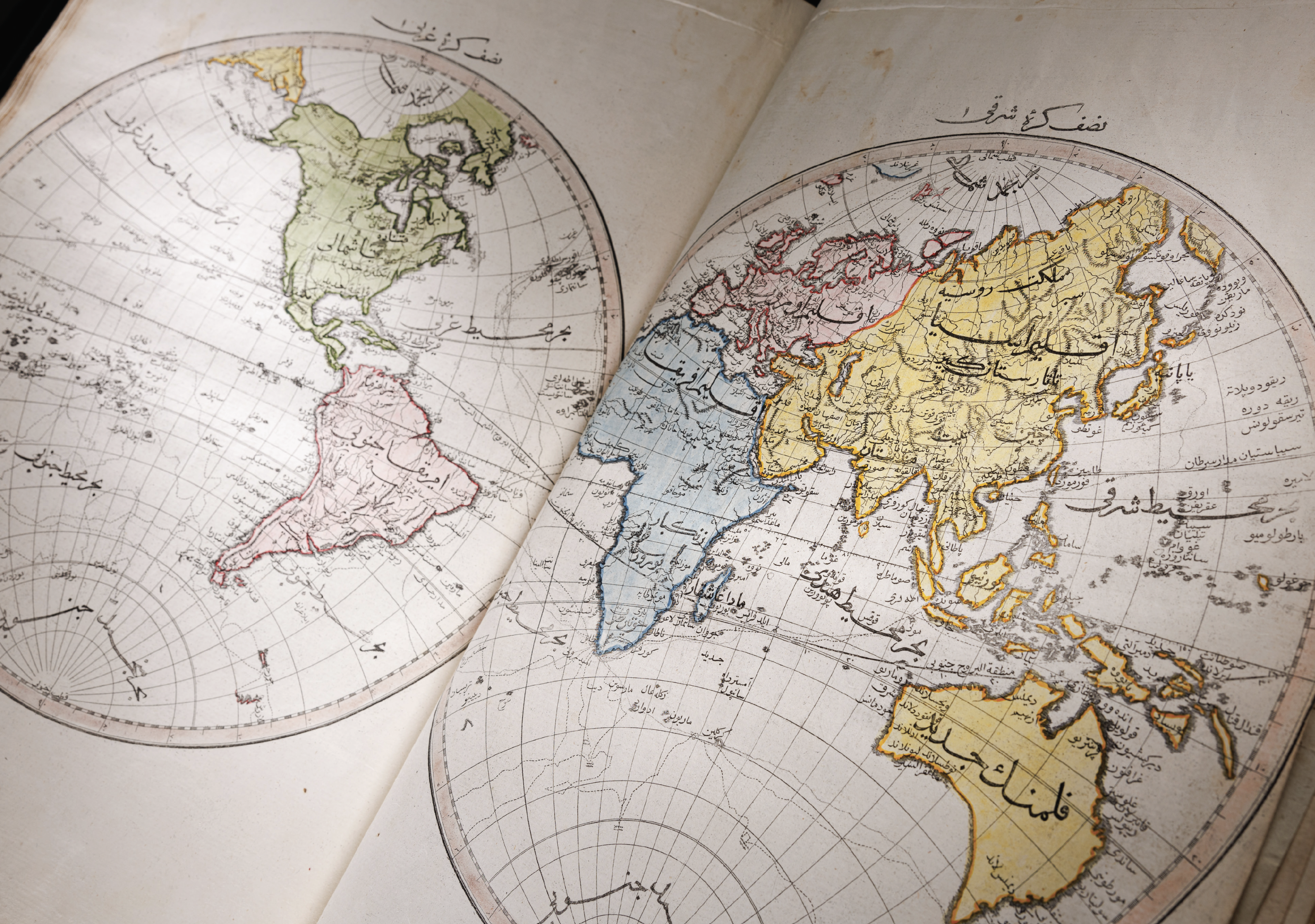
Cedid Atlas Tercümesi
Tab’hane-yi hümayun (School of Military Engineering)
(Üsküdar, 1803/04)
A complete copy, in its original binding, of the first atlas printed in the Islamic world using Western European cartographic conventions. This lavishly illustrated work was commissioned and subsidized by Sultan Selim III under the auspices of the Nizam-? Cedid or “new system” — an ambitious Ottoman reform programme. Only fifty copies of this astonishingly costly book were ever produced; fewer than a dozen complete copies are known to survive.
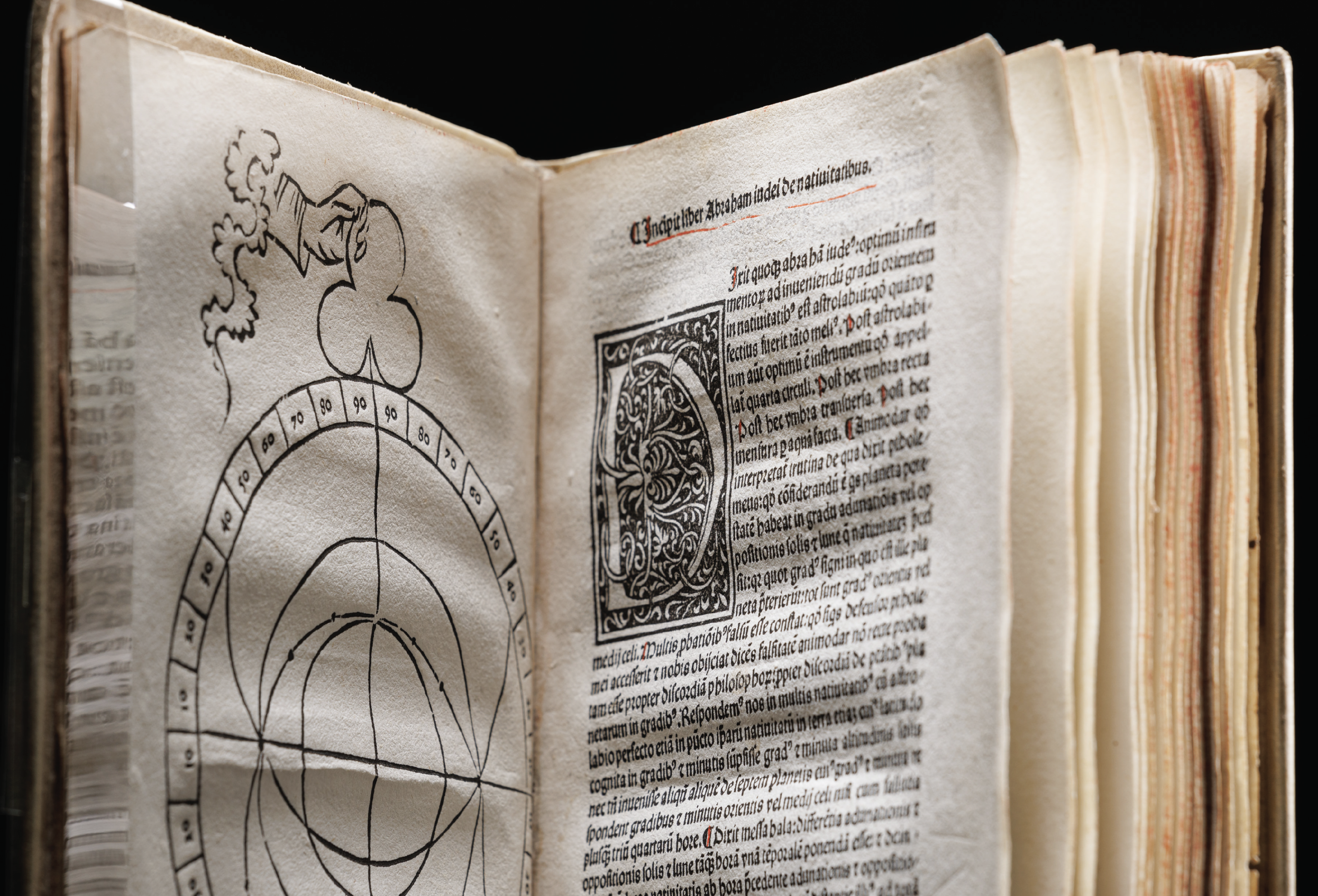
De Nativitatibus / Magistralis compositio astrolabii
Abraham ben Meïr Ibn Ezra / Henricus Bate
(Venice, 1495)
The sole fifteenth-century Latin edition of Abraham ibn Ezra’s Sefer ha-Moladot or “Book of Nativities,” here bound with works by Henricus Bate, a noted thirteenth-century Flemish polymath. Ibn Ezra’s work on astrology was emblematic of the scintillating intellectual output of the Iberian peninsula during the twelfth century; Bates’ own scholarship contributed (among other things) a valuable treatise on astrolabes. Here, both authors come together in an elegant hand-rubricated incunable.

L’Art de Conserver
Nicolas Appert
(Paris, 1810)
This unassuming work represents a genuine milestone in human history, illustrating — decades before Pasteur’s work — the first known viable heat-canning process for food preservation. This innovation, explained here along with practical guidelines for canning different types of food products, saved untold lives and increased food security worldwide. This first edition of the work bears a title page signed by Appert himself.
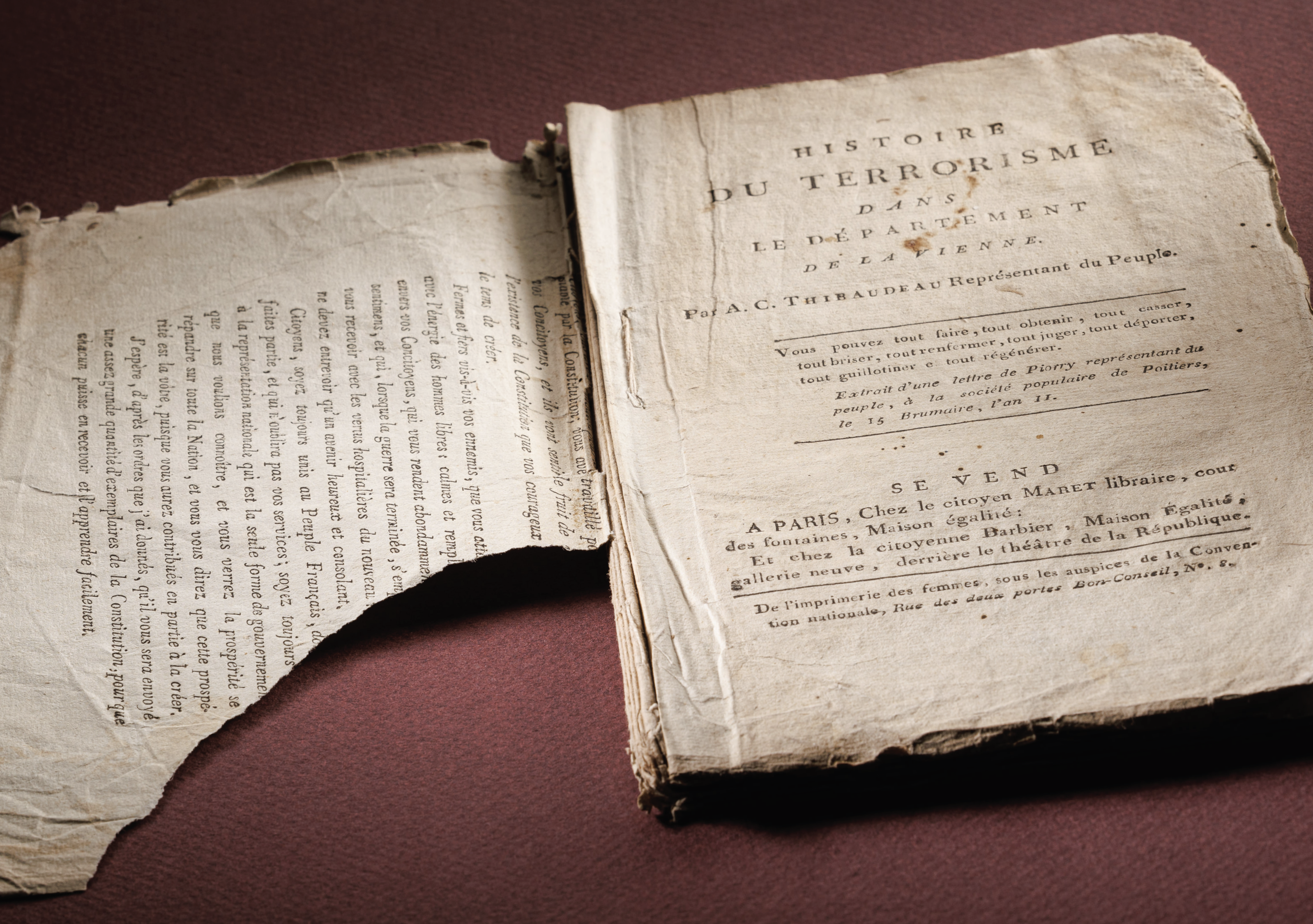
L’Histoire du terrorisme dans le département de la Vienne
Antoine-Claire Thibaudeau
(Paris, 1795)
Still in its original waste-paper wraps, this short work was a product of the short-lived École Typographique des Femmes — better known today as the Imprimerie des Femmes — an exclusively female French Revolutionary press. Comparatively few works of the Imprimerie survive; copies in their original sale state are even more scarce.
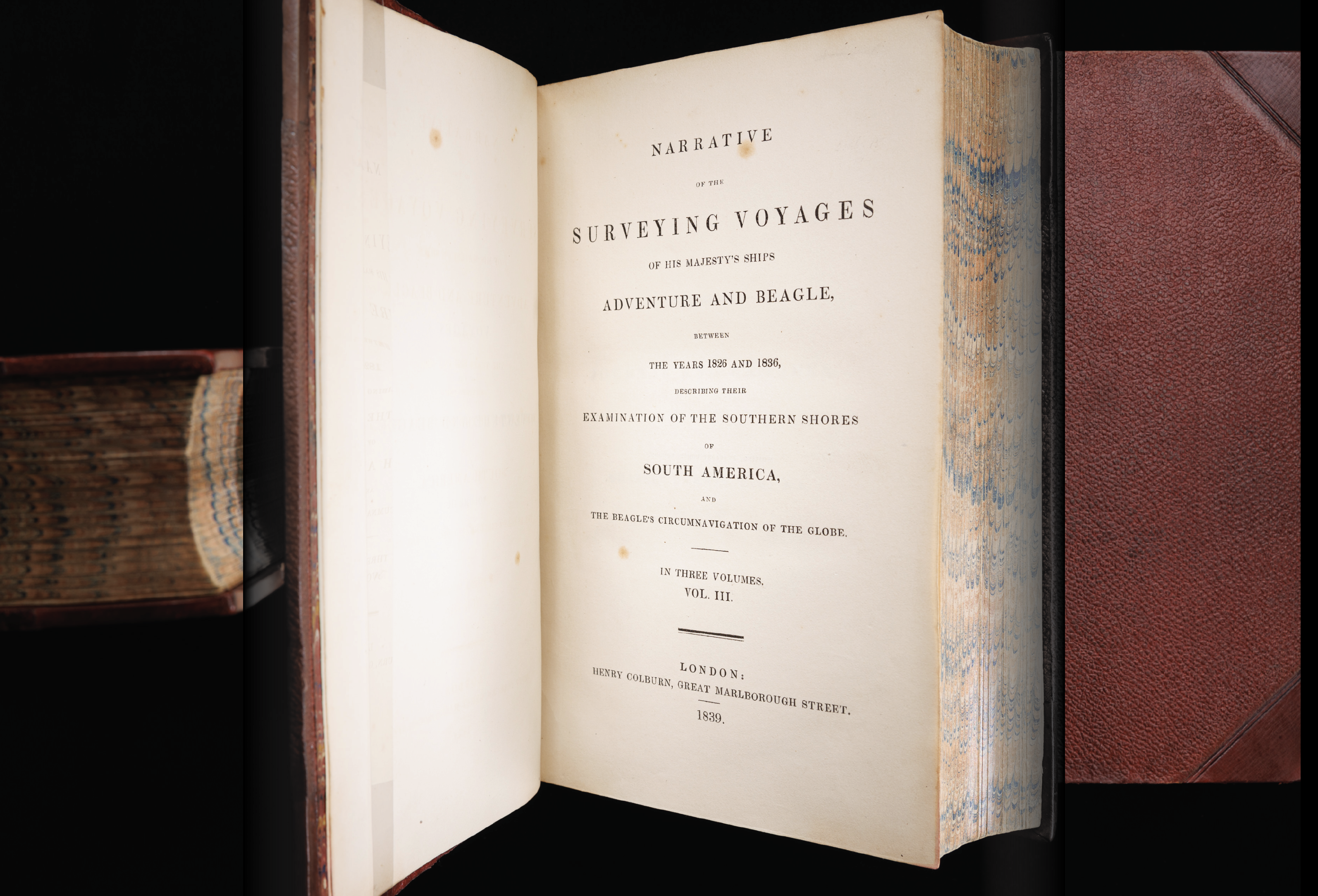
Narrative of the surveying voyages of His Majesty's ships Adventure and Beagle
Charles Darwin / Robert Fitzroy / Philip Parker King
(London, 1840)
Here, an extraordinary moment in the history of science: the first published account of Charles Darwin’s landmark scientific voyage on the H.M.S. Beagle from 1831-1836. This work, which later became famous under the more prosaic title Voyage of the Beagle, here appears with works by Robert Fitzroy (the Beagle’s captain) and Philip Parker King. This particular copy bears a dedication (“…from one of the writers”) in Fitzroy’s own hand.
2022-23 Library Leadership Group
Vivian Lewis
University Librarian
Casey Hoeve
Associate University Librarian
Content, Access and Open Licensing
Helen Kula
Associate University Librarian
Teaching and Learning
Lynne Serviss
Associate University Librarian
User Services and Community Engagement
Wade Wyckoff
Associate University Librarian
Distinctive, Legacy, and Digital Heritage Collections
Anne Pottier
Director
Technology Support and Operations
Jason Brodeur
Associate Director
Digital Scholarship Services
Chris Nicol
Manager
Human Resources
Carly Welch
Manager
Finance and Administration

